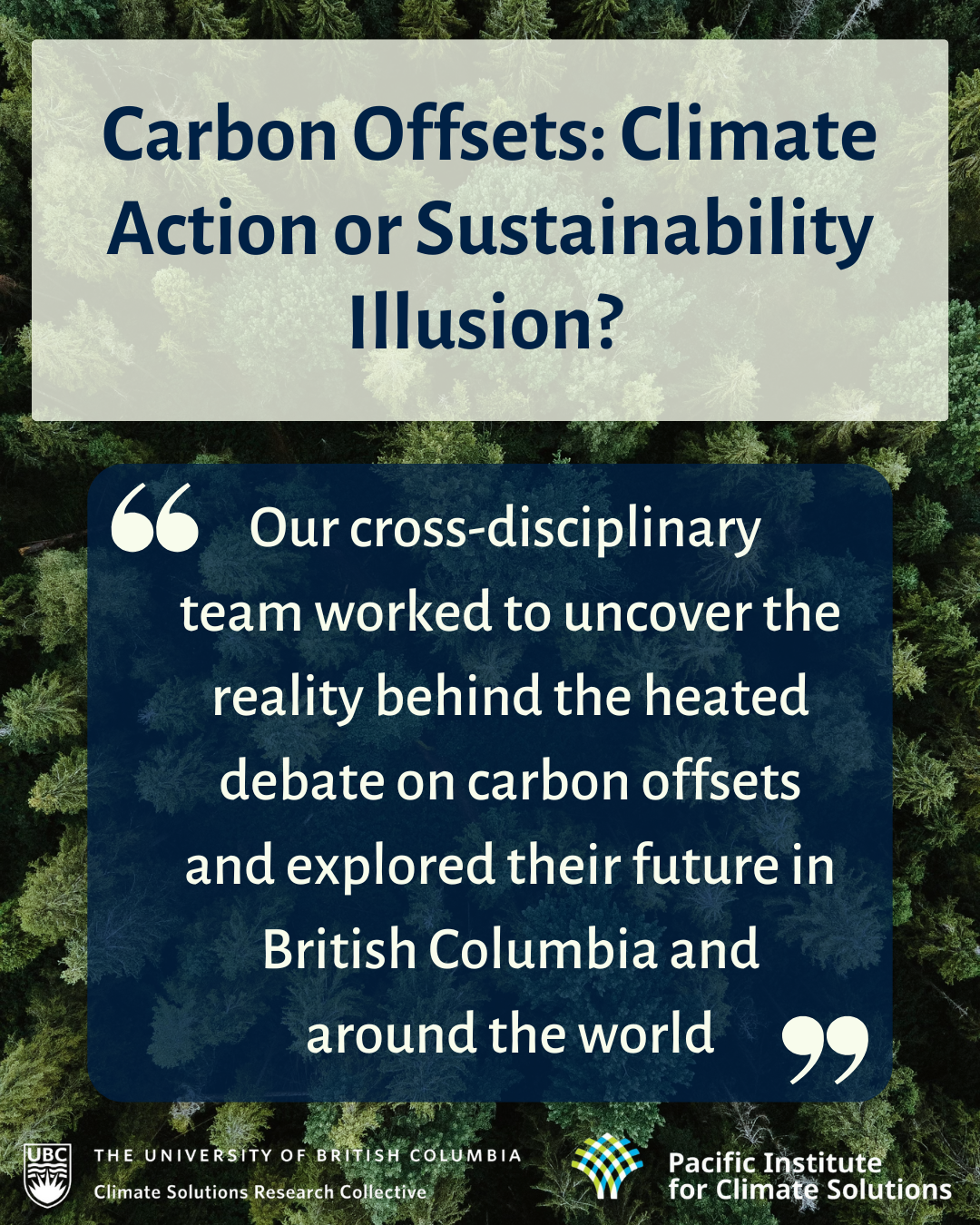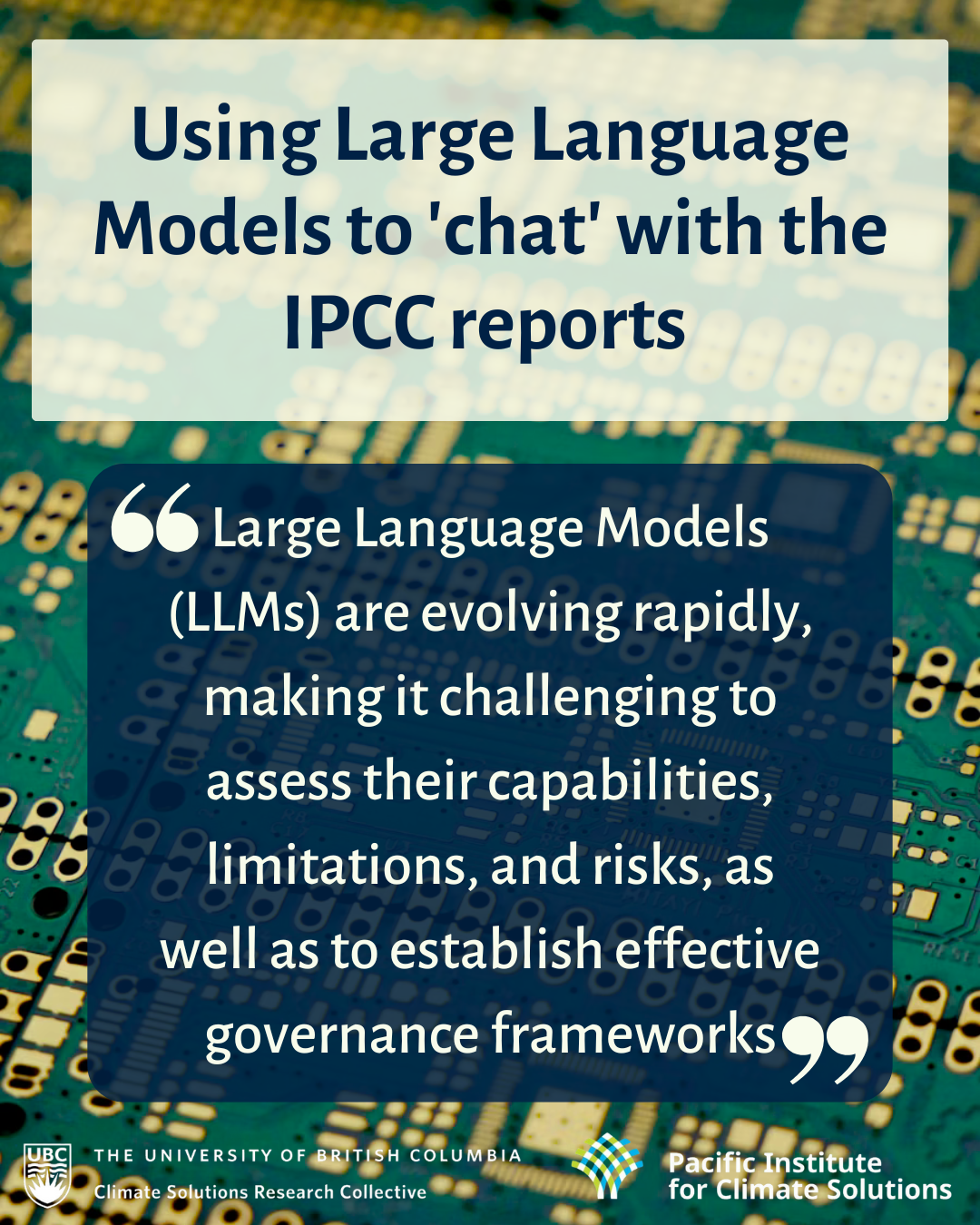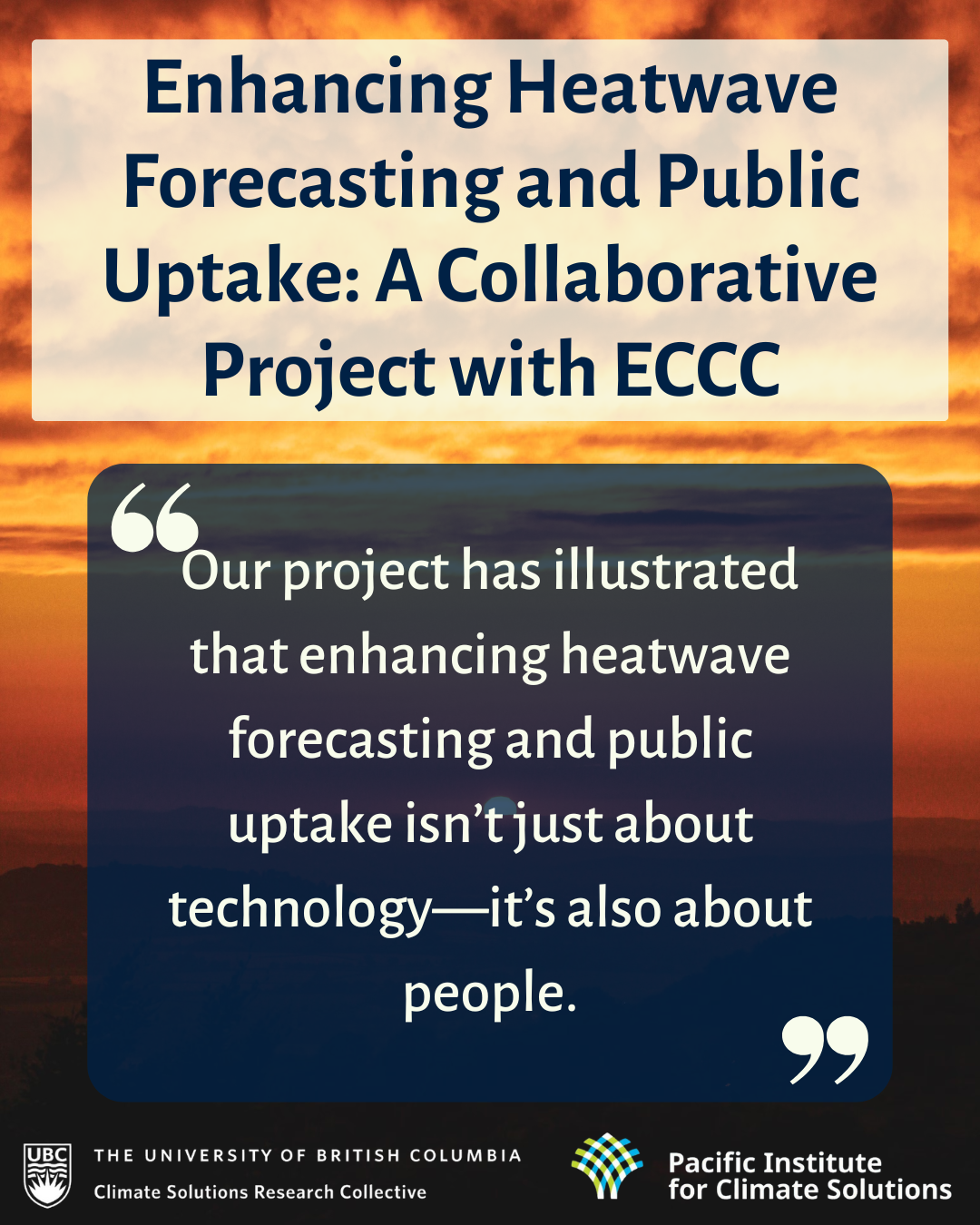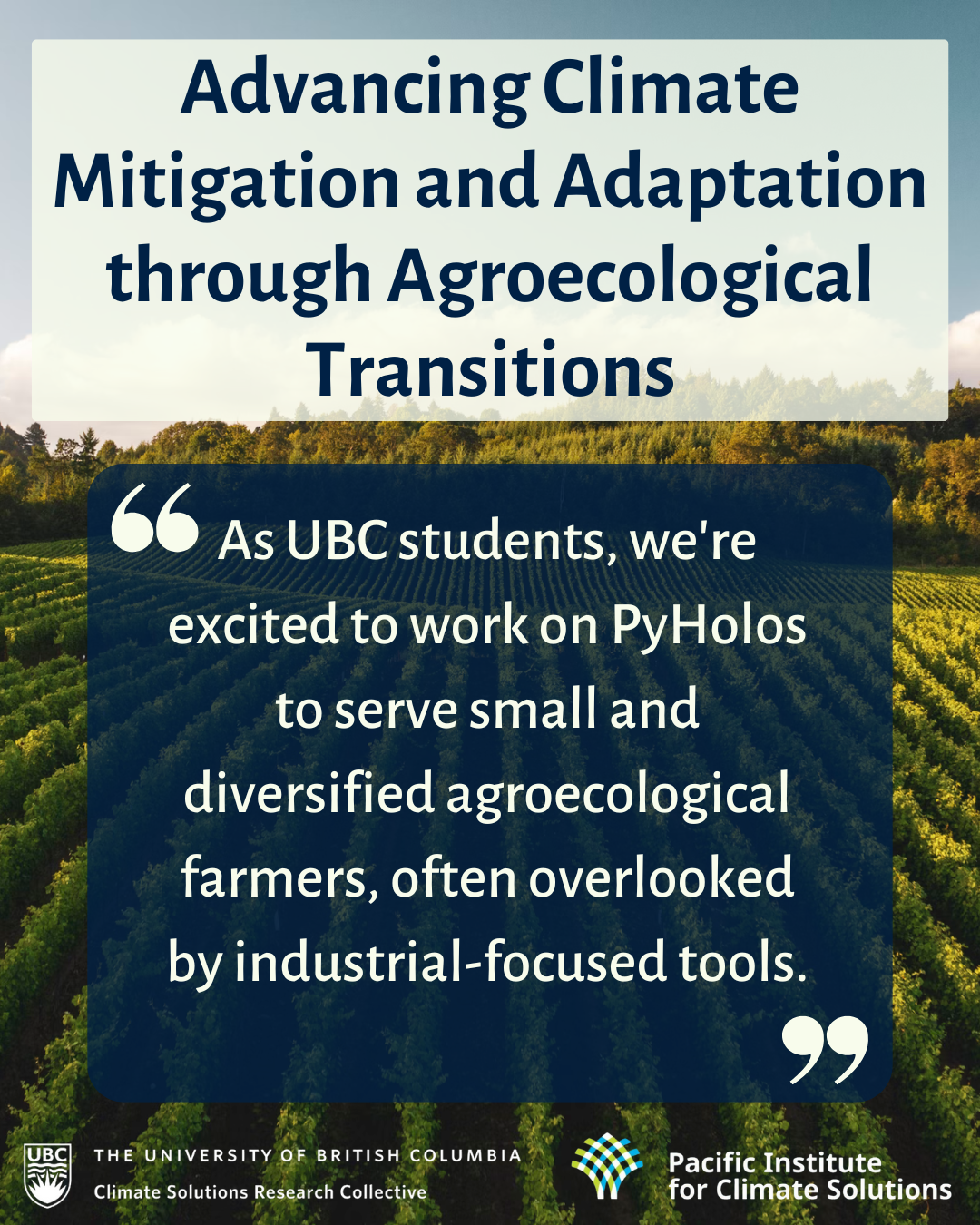Collective Event
Solutions Summit: Working Towards Climate Solutions
April 16, 2025, 1:00 pm to 3:00 pm
The Solutions Scholars Program connects graduate students with scholarly research projects on climate change mitigation, adaptation, and/or education.
In September 2024, four interdisciplinary research cohorts began working together on Solutions Scholars projects. Supported by faculty from across campus, fourteen graduate students have contributed to projects related to heatwave forecasting and communication, evaluating carbon offset programs, using Large Language Models to 'chat' with IPCC reports, and advancing climate mitigation and adaptation in agroecological landscapes.
Join us for this in-person event where we will hear from each project team about the progress of their projects, followed by an opportunity to gather in small tables to dive deeper into individual projects as well as broader related research questions.
Who should attend? Anyone interested in learning more about current research initiatives at UBC and who would like to engage with researchers in conversations related to these projects. Faculty, students and community members are all welcome.
Light refreshments will be provided.
 | Carbon Offsets: Climate Action or Sustainability Illusion? "Carbon offsets are a key part of Canadian climate policy, but there is heated debate about their effectiveness. Our cross-disciplinary team of faculty and students worked together to uncover the reality behind the controversy on carbon offsets and explored their future in British Columbia and around the world. Different subgroups explored the literature, used publicly available data to model the current state of carbon offsets in Canada, and dug into the differences behind Canada’s complex provincial carbon trading systems. Combining our expertise gives us a more accurate picture of the landscape." |
 | Using Large Language Models to 'Chat' with the IPCC reports "The rapid dominance of Large Language Models (LLMs) in web searching, along with their analytical capabilities, presents significant challenges in assessing their impact on climate science, policy, and governance. As these models evolve quickly, their capabilities, biases, and limitations change, making it difficult to analyze their role in providing reliable, transparent, and scientifically accurate insights. This uncertainty complicates their integration into climate decision-making processes, where precision and accountability are critical. To address these challenges, there is an urgent need for adaptable evaluation methods and frameworks that can keep pace with LLM developments, ensuring their responsible use in climate solutions and supporting evidence-based environmental action." |
 | Enhancing Heatwave Forecasting and Public Uptake: A Collaborative Project with ECCC "Our project has illustrated that enhancing heatwave forecasting and public uptake isn’t just about technology—it’s also about people. By prioritizing accessibility, usability testing, and inclusive design from the start, solutions can bridge the gap between forecasting and public action. By embedding this knowledge in our exploration of new heatwave forecasting methods, this project will help move towards ensuring people get the right information at the right time and are equipped to act when it matters most" |
 | Advancing Climate Mitigation and Adaptation through Agroecological Transitions "As UBC students, we're excited to work on PyHolos to serve small and diversified agroecological farmers, often overlooked by industrial-focused tools. These farmers are often interested in emissions information and more likely to use it to inform their future practices making them vital for emissions progress. Although still in progress, PyHolos builds on the Canadian Holos model, integrating into LiteFarm potentially empowering thousands of farmers around the world. Our goal is to reduce the burden of data entry with 'one entry - many uses' data management, representing a promising step towards inclusive and sustainable agriculture." |
| Learn more about these projects and Solutions Scholars here. |
Register for this event by providing your details below.
